Chiba University
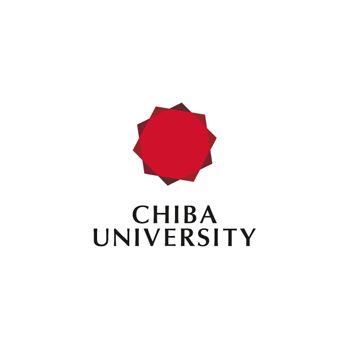
Founded: 1949
Address: 1-33, Yayoicho, Inage Ward - Chiba, Japan
Phone: +81 43 2511111
Address: 1-33, Yayoicho, Inage Ward - Chiba, Japan
Phone: +81 43 2511111
Here you find out Chiba University complete information about fees, location, degree Chiba University offers, number, website, and much more. Chiba University is a leading university in Chiba - Japan.
You can also find out jobs at Chiba University for students, teachers, and professors. We also update the database for an internship at Chiba University for students.
Chiba University began with five faculties in 1949 as a national university under the new postwar education system. Since then, it has expanded to become a comprehensive university comprised of ten faculties and 11 graduate schools.
Since its foundation, Chiba University has aimed to contribute to society through its pioneering education and research. To attain this goal, faculty and staf...f are encouraged to think outside the box and to collaborate across specialty and profession. This open system of faculty-level exchange enables Chiba University to promote its distinctive integrated education and research.
In 2004, changes to the education law allowed the national university to become an independent administrative entity. Under our university"s motto, "Always Aim Higher", we established a new goal to cultivate human resources capability of assuming roles in global society. In 2016, we created a new faculty, the College of Liberal Arts and Sciences, in an effort to stimulate the further development of our university mission.
On the research front, we are dedicated to the advancement of world-level basic and application research through respecting and fostering academic diversity. One of our new initiatives is the Strategic Priority Research Areas in which we 1) offer intensive support to selected six research areas; 2) promote industry-academia-government collaboration; and 3) strengthen social involvement and competitive grant funding; and 4) foster cooperation with domestic and international universities.
Chiba University will continue to contribute to society by the cultivation of human resources, and technology transfer and commercialization of the university research results.
Since Chiba University became an independent administrative institution in 2004, we have vigorously promoted enrichment of liberal arts (universal) education and internationalization in our educational activities in the spirit of the university"s fundamental principle to "Always aim higher." We have continued our tireless efforts to become a future-oriented comprehensive university that stands out among others in the world through the practice of creative education and research that will lead the world and by strongly promoting basic research and applied research at a world level while respecting diversity in learning.
As the university approaches its third medium-term goal period commencing in 2016, we have formulated a university vision for this period to further our development as a comprehensive university with teaching and research functions of the highest standard. We will do this by accurately identifying various issues humanity faces due to the rapid changes in society in Japan and the world at large, by adequately determining the university"s strengths, characteristic features, and potential based on achievement through initiatives to date, and by effectively demonstrating superior research and high-quality teaching capabilities the university possesses in solving various problems.
At Chiba University, our entire university staff is united in its commitment to realizing this vision through the provision of strategic support in creative research areas (which will be one of the university"s strengths), creation of next-generation innovation, autonomous study as independent individuals, and nurturing the development of next-generation human resources who can play key roles in international society.
Chiba University was founded in 1949, unifying several regional former national colleges and schools such as Chiba Medical College and Chiba Normal School. Its fundamental mission since then has been, as encapsulated by the inscription on the University Bell, ad altiora semper (always toward the higher), to equip students with the ability to make mature and informed judgments while nurturing and guiding their creativity. Pursuing these goals of excellence has resulted in Chiba University becoming one of the leading academic research centers of Japan.
Currently, Chiba University consists of nine faculties, the university library, the university hospital and other educational and research facilities. With 11,109 students in the undergraduate program, it has long been one of the largest universities in Japan. As for the graduate school, there are about 2,189 students in ten master"s programs and 1,243 in nine doctoral programs.
Chiba University is proud of its productive faculties and varied courses, the particulars of which will be introduced in the following sections. The University"s four campuses, Nishi-Chiba, Inohana, Matsudo, and Kashiwa-no-ha are ideally located in Chiba Prefecture, an area noted for its industrial, intellectual and international achievements. In recent decades Chiba has undergone rapid development which in many ways rivals the neighboring Tokyo Metropolis. Many national projects have been based in Chiba Prefecture, and now Chiba has one of the main international transport centers (New Tokyo International Airport Narita) and one of the largest business centers in Japan (Makuhari New Metropolitan Area and Nippon Convention Center). Many new academic and industrial complexes for the advanced sciences (The Kazusa DNA Research Institute) are located in Chiba Prefecture. The developments in Chiba today are representative of tomorrow"s Japan. Matters occurring in the most progressive parts of Japan, or even in the world, will provide rich materials for research in various aspects of the human, social, industrial and natural sciences.
Chiba University, with the support of the Japanese national government, is extending the frontiers of its international activities. The University is establishing new cooperative relations with numerous overseas universities, and developing an even closer relationship with those with which it has already concluded cooperation agreements. The University has already achieved a high degree of participation in international cooperative research projects. Chiba University presently has a large body of international research scholars and students studying on its various campuses. As of 2014, there are approximately 341 international researcher and 819 international students. Starting October, 1996, Chiba University launched a one-year scholarship program (Japan Program at Chiba: J-PAC) designed to provide international students with the opportunity to take courses in English.
You can also find out jobs at Chiba University for students, teachers, and professors. We also update the database for an internship at Chiba University for students.
Chiba University began with five faculties in 1949 as a national university under the new postwar education system. Since then, it has expanded to become a comprehensive university comprised of ten faculties and 11 graduate schools.
Since its foundation, Chiba University has aimed to contribute to society through its pioneering education and research. To attain this goal, faculty and staf...f are encouraged to think outside the box and to collaborate across specialty and profession. This open system of faculty-level exchange enables Chiba University to promote its distinctive integrated education and research.
In 2004, changes to the education law allowed the national university to become an independent administrative entity. Under our university"s motto, "Always Aim Higher", we established a new goal to cultivate human resources capability of assuming roles in global society. In 2016, we created a new faculty, the College of Liberal Arts and Sciences, in an effort to stimulate the further development of our university mission.
On the research front, we are dedicated to the advancement of world-level basic and application research through respecting and fostering academic diversity. One of our new initiatives is the Strategic Priority Research Areas in which we 1) offer intensive support to selected six research areas; 2) promote industry-academia-government collaboration; and 3) strengthen social involvement and competitive grant funding; and 4) foster cooperation with domestic and international universities.
Chiba University will continue to contribute to society by the cultivation of human resources, and technology transfer and commercialization of the university research results.
Since Chiba University became an independent administrative institution in 2004, we have vigorously promoted enrichment of liberal arts (universal) education and internationalization in our educational activities in the spirit of the university"s fundamental principle to "Always aim higher." We have continued our tireless efforts to become a future-oriented comprehensive university that stands out among others in the world through the practice of creative education and research that will lead the world and by strongly promoting basic research and applied research at a world level while respecting diversity in learning.
As the university approaches its third medium-term goal period commencing in 2016, we have formulated a university vision for this period to further our development as a comprehensive university with teaching and research functions of the highest standard. We will do this by accurately identifying various issues humanity faces due to the rapid changes in society in Japan and the world at large, by adequately determining the university"s strengths, characteristic features, and potential based on achievement through initiatives to date, and by effectively demonstrating superior research and high-quality teaching capabilities the university possesses in solving various problems.
At Chiba University, our entire university staff is united in its commitment to realizing this vision through the provision of strategic support in creative research areas (which will be one of the university"s strengths), creation of next-generation innovation, autonomous study as independent individuals, and nurturing the development of next-generation human resources who can play key roles in international society.
Chiba University was founded in 1949, unifying several regional former national colleges and schools such as Chiba Medical College and Chiba Normal School. Its fundamental mission since then has been, as encapsulated by the inscription on the University Bell, ad altiora semper (always toward the higher), to equip students with the ability to make mature and informed judgments while nurturing and guiding their creativity. Pursuing these goals of excellence has resulted in Chiba University becoming one of the leading academic research centers of Japan.
Currently, Chiba University consists of nine faculties, the university library, the university hospital and other educational and research facilities. With 11,109 students in the undergraduate program, it has long been one of the largest universities in Japan. As for the graduate school, there are about 2,189 students in ten master"s programs and 1,243 in nine doctoral programs.
Chiba University is proud of its productive faculties and varied courses, the particulars of which will be introduced in the following sections. The University"s four campuses, Nishi-Chiba, Inohana, Matsudo, and Kashiwa-no-ha are ideally located in Chiba Prefecture, an area noted for its industrial, intellectual and international achievements. In recent decades Chiba has undergone rapid development which in many ways rivals the neighboring Tokyo Metropolis. Many national projects have been based in Chiba Prefecture, and now Chiba has one of the main international transport centers (New Tokyo International Airport Narita) and one of the largest business centers in Japan (Makuhari New Metropolitan Area and Nippon Convention Center). Many new academic and industrial complexes for the advanced sciences (The Kazusa DNA Research Institute) are located in Chiba Prefecture. The developments in Chiba today are representative of tomorrow"s Japan. Matters occurring in the most progressive parts of Japan, or even in the world, will provide rich materials for research in various aspects of the human, social, industrial and natural sciences.
Chiba University, with the support of the Japanese national government, is extending the frontiers of its international activities. The University is establishing new cooperative relations with numerous overseas universities, and developing an even closer relationship with those with which it has already concluded cooperation agreements. The University has already achieved a high degree of participation in international cooperative research projects. Chiba University presently has a large body of international research scholars and students studying on its various campuses. As of 2014, there are approximately 341 international researcher and 819 international students. Starting October, 1996, Chiba University launched a one-year scholarship program (Japan Program at Chiba: J-PAC) designed to provide international students with the opportunity to take courses in English.
Read More
Details:
LeaderShip: President: Yasushi Saito
Fees:
Time:
Phone Number: +81 43 2511111
City: Chiba
Fees:
Time:
Phone Number: +81 43 2511111
City: Chiba
Timing:
Country: Japan
Staff: 2572
Website: http://www.chiba-u.jp
Country: Japan
Staff: 2572
Website: http://www.chiba-u.jp
Subjects:
Video:
Jobs in Chiba University
Currently, there is no job opening in Chiba University as per our database.

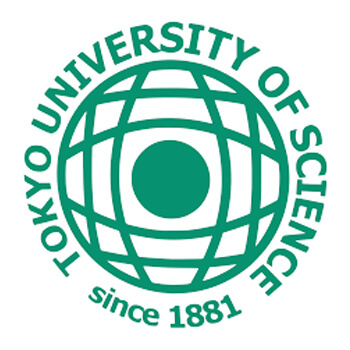
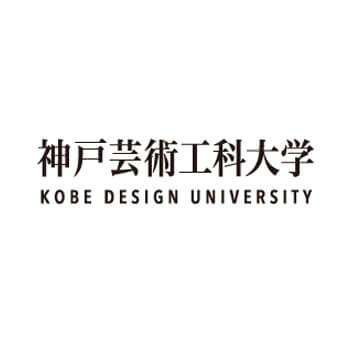
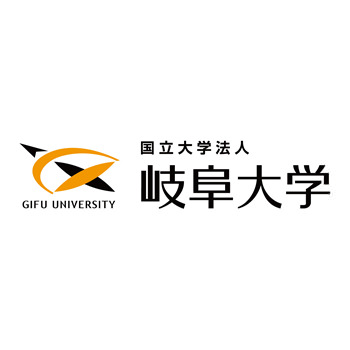
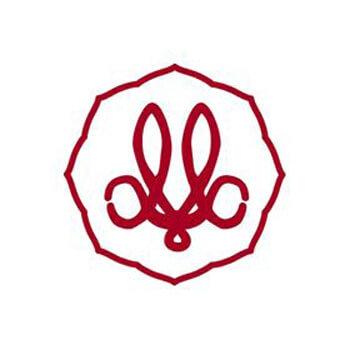

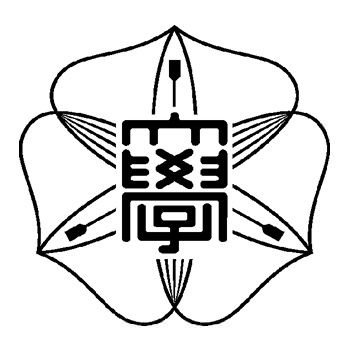
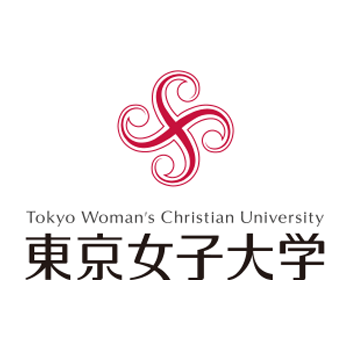
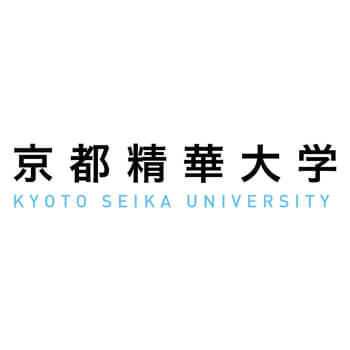










Leave a Reply